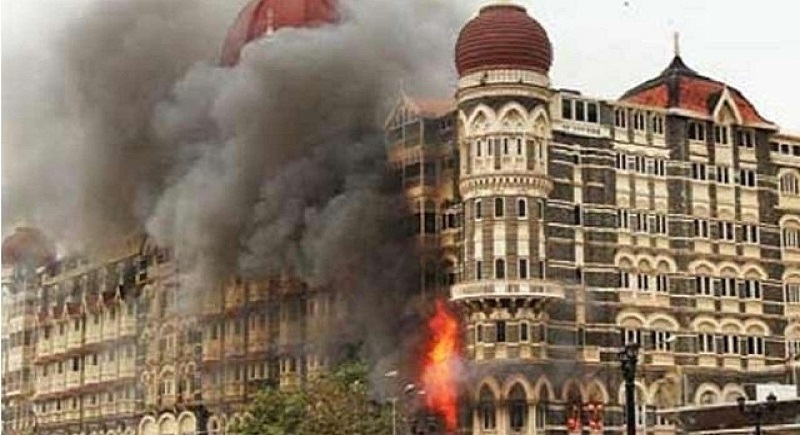Remembering 26/11

By Sharayu Bapat
Mumbai, Nov 26: Mumbai, bright and shinning as always, started a day with rush and hassle, but today that hassle stopped for one minute, as the city bowed in knees for those who lost their life for saving the city from terror attack. Today, November 26, 2018 is 10th anniversary of 26/11 terror attack on Mumbai.
“Tribute to those who lost their lives in the gruesome 26/11 terror attack in Mumbai. Our solidarity with bereaved families. A grateful nation bows to our brave police and security forces who valiantly fought the terrorist during the Mumbai attacks.” The tweet by Prime Minister Narendra Modi on 10th anniversary of 26/11 terror attack on Mumbai reminds us of our responsibility.
The 26/ 11 is a black page of modern Indian history. India suffered many security breaches in post-independence era, but 26/ 11 is a deep wound in Indian minds.
These terror attacks took place in Mumbai in 2008. The 10 members of Lashkar-e-Taiba, an Islamic terrorist organization based in Pakistan executed series of 12 coordinated shooting and bombing attacks lasting four days across the Mumbai. These attacks started on November 26 last up to November 29. 174 people died including 9 attackers and 300 got wounded.
These attacks are most devastating in Indian history, but they did not succeed in breaking the spirit of Mumbai and people of India. The nation in fact, emerged stronger and took several policy decisions that would go to strengthen its anti- terrorism framework.
The religious complexity and unresolved border disputes are main reasons for terrorism in India. 26/11 is living evidence of these complexities. All the attackers of this terror act were young and brainwashed by certain ideologies. These ideologies are using such innocence for creating disturbances in society. On the 10th anniversary of these attacks, we must pledge ourselves to secure such innocence.
After these attacks, there are huge changes occurred in Indian foreign policy. India became a one of the most active country to cease international terrorism. India took strong stands in UN about Pakistan’s lack of interest in investigating the culprits.
After introduction of Modi Doctrine, the face of Indian foreign policy towards terrorism transformed. Prime Minister Modi took several steps in bilateral or multilateral relations to limit terrorism. Indian strategic agreements with Singapore, Russia and USA strongly comment on contemporary international terrorism.
Indian judiciary played most important part in giving verdict on this case. Giving fair trials and analyzing every testimony with clear perspective is identity of Indian judiciary. This identity shone ablaze in this case. August 29, 2012, Supreme Court upheld death sentence to Ajmal Kasab.
The changed approach of Indian government towards terrorism is welcoming change. Under the leadership of Narendra Modi, India is taking strong stand against terrorism.
Bowing in the memory of martyrs is our duty but it is also our commitment to save the world from the menace of terrorism, so today we must take a pledge in the words of Union Finance Minister Arun Jaitley who said: “We stand resolute and united against terrorism, Remembering 26/11”.